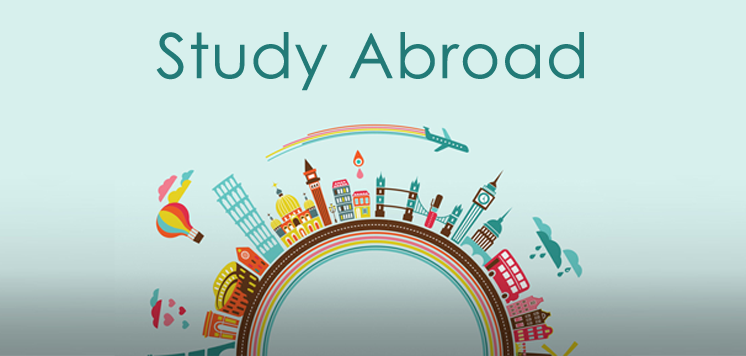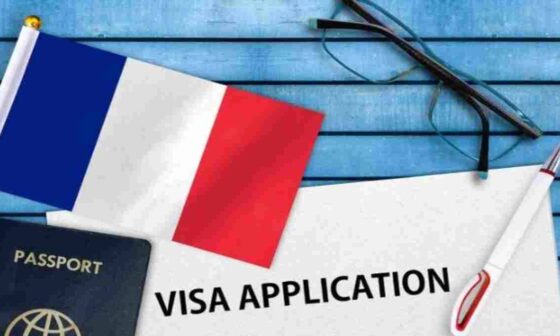Have you heard of express entry? If you have been desperate, to japa to Canada from Nigeria, then you must have heard of express entry. Express entry is one of the easiest ways to japa to Canada for Nigerians. You might not be completely versatile on what it entails or how to apply for it.
In this article, I am going to give a detailed guideline on what express entry is, how to apply, how candidates are ranked, and the cost of migration through the express entry system. I will walk you through.
What is Express Entry?
Express Entry is an online pathway to skilled worker’s settlement in Canada and manages the immigrant’s application for permanent residence. It allows you to apply for several Canadian immigration programmes. It is an application process for skilled workers who would like to work permanently in Canada.
As one of the main systems of economic immigration to Canada, it is a competitive immigration system, ranking all eligible candidates against one another and then selecting the best-ranking candidates to apply for Canadian permanent resident status. Candidates are ranked against one another based on their age, education, language, proficiency, work experience, and other factors. The advantage of this express entry is that the individual selected can become a Canadian permanent resident within a few months.
Suitable federal economic immigration programmes under the express entry system include the following:
- The Canadian Experience Class (CEC)
- Federal Skilled Worker Programme (FSWP)
- Provincial Nominee Programme ( PNP)
- The Federal Skilled Trades Programme (FSTP)
A comprehensive ranking programme is used to rank the candidates when they are accepted into the express entry pool. The first thing you need to do is create an online express entry profile. After approximately two weeks, the Canadian government chooses the top-ranking candidates from the express entry pool. It then issues ITAs for permanent residence to those individuals.
Key Points
- Express Entry is an online system facilitating skilled worker immigration to Canada, offering a streamlined pathway to permanent residency.
- Eligibility for Express Entry is based on factors such as age, education, language proficiency, and work experience, with candidates ranked using the Comprehensive Ranking System (CRS).
- Applicants can improve their CRS score through factors like language proficiency, education assessment, and obtaining a job offer or provincial nomination.
- Express Entry candidates receive invitations to apply (ITA) based on CRS scores, with the process typically taking six months or less for successful applicants.
- Understanding the requirements and strategic planning can significantly enhance a Nigerian candidate’s chances of success in the Express Entry system.
How Are Points in the Comprehensive Ranking System Calculated?
You must first get enough points in the Comprehensive Ranking System ( CRS) to be eligible for express entry. CRS points are divided into two sections: core points, which are further divided into three categories, and additional points. The maximum score for both points is 1,200 points.
The different sections are as follows:
#1. Core/Human Capital Factors
This section awards points based on the following factors, giving a maximum of 460 points.
- Your age
- Your highest level of educational qualification
- How fluent are you in English or French?
- How much Canadian work experience do you have?
#2. Spouse or Common-law Partner Factors
It gives a maximum point of 500 and these points are awarded based on the following factors:
Advertisements
- How fluent is your spouse or common-law partner in English or French?
- How much Canadian work experience your spouse or common-law partner has
- Your spouse’s or common-law partner’s highest educational qualification.
#3. Skill Transferability Factors
It gives a maximum of 100 points and these points are awarded based on the following factors:
- Combining your language proficiency with any post-secondary degree.
- Combining any certificates of qualifications (in trade occupations)
- Combining any relevant foreign work experience with Canadian work experience
- Combining any Canadian work experience with any post-secondary degrees
#4. Additional Points
It gives a maximum point of 600; it awards these points based on the following factors:
- Having an arranged job offer in Canada
- Having provincial or territorial nomination
- Relevant post-secondary education in Canada
- Having a sibling who is a permanent resident or a citizen of Canada
- Scoring highly on French or English language skills tests
What Are the Requirements for the Express Entry Programmes?
There are four different programmes under express entry and each program requires you to meet specific conditions to apply. You must select the one for which you meet all the required conditions. Let me take you through the requirements for each of them
#1. Federal Skilled Worker Program (FSWP)
If you want to immigrate to Canada under the FSWP, there are specific requirements you should meet to make it through the Express Entry System. They include:
- Proof of adequate language ability in French or English by taking an approved language test
- Proof of Canadian secondary or post-secondary educational qualifications or international equivalent
- Skilled work experience in National Occupation Classification (NOC) categories TEER 0,1,2, or 3 for at least one continuous year.
You do not need a job offer to qualify for FSWP in the Express Entry system.
#2. Canadian Experience Class (CEC)
If you want to immigrate to Canada under the CEC, there are specific requirements you should meet to make it through the Express Entry System. They include:
Advertisements
- CLB 7 English or French proficiency for NOC 0 or A; CLB 5 for NOC B.
- The skill type must be 0, A, or B under the NOC
- Have a minimum of one year of work experience in the past three years, obtained under a valid work permit. The job can be full-time, part-time, or both
Job offers and educational levels aren’t considerations in this programme.
#3. The Federal Skilled Trades Programme ( FSTP)
If you want to immigrate to Canada under the FSTP, there are specific requirements you should meet to make it through the Express Entry System. They include:
- Canadian or foreign skilled trade experience skill type (under the NOC B main groups)
- English or French proficiency: CLB 5 ( listening and speaking) and CLB 4 ( writing and reading).
- At least 2 years of work experience in the previous 5 years. Your primary occupation must constitute a full-time and part-time job combination or at least two jobs.
- Sufficient funds to support you and your family while in Canada
- A valid full-time job offer for a minimum of 1 year. Alternatively, have a certificate of qualification proving your professionalism in the skilled trade. Federal, territorial, and Canadian authorities are responsible for issuing certificates.
Education requirements are not necessary for Express Entry candidates under this programme.
#4. Provincial Nominee Programmes (PNP)
In Express Entry, you can apply to one of the three programmes listed above through PNP. The basic requirements for this involve being eligible for one of the above programmes and also being eligible for the specific requirements of the province or territory in which you wish to be nominated.
How Do You Create an Online Express Entry Profile?
This profile enables the federal government of Canada to assess your eligibility as a skilled worker applicant. The following are steps to create an online Express Entry profile:
#1. Take a Language Ability Test
All the skilled immigration programmes demand that the express entry candidate be conversant with at least one of Canada’s official languages. So before applying for express entry, take a government-approved English or French proficiency test and add the results to your profile. Remember, it must be a government-approved test.
#2. Assess Your Foreign Education Credentials
This is only applicable if you are a Federal Skilled Worker Programme applicant. If you studied outside Canada, have your certificates or degrees assessed to ensure that your credentials are equivalent to Canadian education. I will advise you to undergo the assessment while applying for another programme, as it can significantly increase your eligibility points.
#3. Find out Your National Occupation Classification (NOC)
You must show that your work experience aligns with the NOC database. Therefore, ensure that your job lies in skilled type 0 (management), skilled type A (professional) or skilled type B (skilled trade and technical jobs).
#4. Determine Your Express Entry Eligibility
There is an online tool found on Immigration, Refugees, and Citizenship Canada’s website that you can use to check your eligibility.
#5. Compile Your Express Entry Profile
Build your profile by providing all the necessary information about your eligibility requirements. This necessary information may include contacts, age, family makeup, language ability, work experience, and educational background. You should also include all the relevant supporting documents.
#6. Submit Your Complete Profile
Before submitting your profile, ensure you confirm all the needed details are in place. Consequently, you will receive a job-seeker validation code and an express entry number.
If you meet the requirements, you will be placed in the express entry pool by the immigration officers. The offer will assess you using the Comprehensive Ranking System, and if you pass the minimum score, you will receive an ITA as a permanent resident.
How to Apply to Express Entry Canada
#1. Determine Express Entry Eligibility
Potential Express Entry applicants will need to be eligible under one of the following federal economic immigration programs:
– The Federal Skilled Worker Program (FSW), which targets foreign workers;
– The Canadian Experience Class (CEC), which targets Canadian workers; or
– The Federal Skilled Trades Program (FST), which targets trade workers,.
A portion of the Provincial Nominee Programs (PNPs) are aligned with the Express Entry program, but candidates still must be eligible under one of the three federal programs in order to enter the pool of candidates.
Though the eligibility requirements differ for each of the aligned Express Entry programs, all candidates are required to have at least one year of skilled work experience, as well as a certain level of proficiency on an approved language test in either English or French. Also, Canada screens all Express Entry applicants for criminal history and medical issues that could make a person inadmissible.
#2. Create an Express Entry Profile
Eligible individuals must submit a profile to the pool of candidates. The Express Entry profile acts as an Expression of Interest (EOI). Eligible candidates will automatically receive a score based on their profile and will be ranked against the other candidates in the pool.
The ranking score for Express Entry is based on the Comprehensive Ranking System (CRS) and is out of 1,200 points. Candidates can improve their rank by taking steps to improve their CRS score. The higher a candidate’s CRS score, the higher the likelihood they will receive an Express Entry Invitation to Apply (ITA).
The CRS score is used as a cut-off point in Express Entry draws. It is designed to project an Express Entry applicant’s likelihood of being economically successful in Canada. It ranks different candidates based on their career and educational history, language skills, and whether they have already received a qualifying job offer or provincial nomination in Canada, among other factors.
Candidates can receive additional points if they have a valid job offer from a Canadian employer, if they’ve received a provincial nomination, or for a few other factors.
#3. Create a Job Bank Profile
Express Entry candidates without a job offer or a provincial nomination may then register in the Canada Job Bank, a free public resource used to help Canadian employers identify and select workers possessing the skills they require. This step used to be mandatory but became voluntary as of June 2017.
#4. Improve Your Expree Entry CRS Score
Candidates in the Express Entry pool who have not yet been selected are able to improve their profile and score. They can do this by submitting new and updated information. Examples include increased language proficiency scores, educational credentials assessments, additional foreign work experience or Canadian work experience, and/or obtaining a qualifying job offer or a provincial nomination. See our tips for improving your CRS score.
#5. Receive an Invitation to Apply (ITA)
Immigration, Refugees, and Citizenship Canada (IRCC) conducts Express Entry draws at regular intervals (usually every two weeks). In these draws, Express Entry candidates above a certain rank are invited to apply for Canadian permanent residence. If a candidate is not invited, their profile will expire after 12 months, at which point they may submit a new profile.
#6. Submit Your Application for Permanent Residence
If you receive an Invitation to Apply (ITA), you will be given 60 days to submit a complete application for permanent residence. In this application, you will have to provide extensive personal information along with supporting documentation. The entire application is submitted electronically.
After you’ve submitted your application, you have to wait for a final decision to be issued. 80 percent of Express Entry applications are processed in six months or less. If your application is approved, then you will receive authorization to activate your permanent resident status in Canada to become a Canada PR (permanent resident).
How Much Does It Cost to Immigrate to Canada Through Express Entry?
You should note that there are no government fees due on submitting your Express Entry profile. The table below may not include all the costs, such as the incremental cost of shipping, etc.
| BEFORE ENTERING THE POOL | ||
| ITEM | COST | OPTIONAL OR REQUIRED |
| Educational Credentials Assessments (ECS) | 293,000 naira + ($200+) | Required for FSW candidates and recommended for FST and CEC candidates who studied outside Canada |
| Language tests | 293,000 naira + ($200+) | Required |
| OTHER ITEMS AND COSTS | ||
| Police clearance certificate | It depends on the country. It may range from free service to up to 146,500 naira or more ($100 or more) ) | required |
| Medical report | 293,000 naira + ($200+) | required |
| Representation by a lawyer or regulated consultant | Ranges but fees typically range from 2.9 million naira ($2000) to 7.3 million naira ($5000) | optional |
GOVERNMENT FEES | ||
| Processing fee | 1.39 million naira ($950) | required |
| Right of permanent residence fee | 842,375 naira ($575) | required |
| Addition of accompanying spouse/partner | 1.39 million naira ($950) processing fee, 842,375 ($575) for right of permanent residence | Required, if applicable |
| Addition of dependent child(ren) | 380,900 naira ($260) | Required, if applicable |
How Many Points Do You Need to Immigrate to Canada Through Express Entry?
This question is best answered in two parts: before entering the Express Entry pool and once in the pool.
#1. Before Entering the Express Entry Pool
There are three Canadian immigration programmes through which you may become a candidate in the Express Entry pool: the Federal Skilled Worker Programme (FSW), the Federal Skilled Trades Programme (FST), and the Canadian Experience Class (CEC). All 3 programmes target skilled workers with either foreign work or Canadian work experience.
Neither the Federal Skilled Trade programme nor the Canadian Experience Class requires candidates to satisfy a points requirement to be eligible to submit a profile. The Federal Skilled Trade Programme is for qualified tradespersons with recent experience in a listed occupation, and the Canadian Experience Class is for people with recent skilled Canadian work experience.
The FSW programme, on the other hand, is open to people around the world who satisfy a minimum point requirement for eligibility. Under the FSW points grid, you need to be awarded at least 67 points out of 100 in order to enter the pool.
#2. Once in the Express Entry Pool
In the Express Entry pool, candidates—regardless of which programme they are eligible for—receive a CRS score. This score determines where an individual candidate ranks. When IRCC conducts an Express Entry draw, this score is the main determining factor in deciding which candidates are invited to apply for permanent residence.
Do take note that the CRS cut-off thresholds are not predetermined and that the threshold is subject to change for different Express Entry draws. Ultimately, there is no strict or written number of points you need to immigrate to Canada through Express Entry, but previous draws give an indication of which candidates have the best chances of being invited to apply based on their CRS score.
Category-based express entry Selection
To be eligible for category-based selection, you must meet the requirements of the category. Immigration, Refugees, and Citizenship Canada (IRCC) also holds category-based draws that invite candidates based on factors like language ability and work experience. These draws tend to have lower CRS requirements because fewer candidates in the pools are competing for invitations.
How Long Does It Take to Immigrate to Canada Through Express Entry System?
Canada’s Express Entry system is designed to provide fast permanent residence in Canada. For eligible Express Entry candidates who receive an invitation to apply (ITA) soon after entering the pool and who then quickly submit a complete Canadian permanent residency immigration application, the entire process may take six months or even less. However, the following variables may extend the timeline of your becoming a permanent resident and should be taken into account:
- While some candidates are invited soon after entering the Express Entry pool, other candidates, depending on their CRS score and CRS cut-off thresholds in Express Entry draws, may only receive an ITA months later or not at all.
- Some invited candidates may be ready to apply for immigration to Canada soon after being invited, while others may need more than the 60 days allotted.
- While IRCC aims to process permanent residence applications within six months, some applications may take longer, and decisions on other applications may take less than six months.
What Are My Chances of Successfully Getting Permanent Residence Through Express Entry?
Before entering Canada’s Express Entry pool, do a rough calculation of what your CRS score could be by using the Government of Canada’s CRS calculator. Compare this score to the CRS score cut-off in the latest express entry draws. Are you close to the cut-off? Above the cut-off? Far below the cut-off? This should give you an idea of your chances of success in Express Entry.
Your actual CRS score may differ from the score you received from the CRS calculator. Your actual CRS score is automatically generated based on the information and documents included in your Express Entry profile.
Once you are in the pool, it is essential that you track the express entry draw trends and do all that you can to increase your CRS score. Increasing your CRS score will increase your chances of becoming a permanent resident of Canada.
How Long Can You Stay in Express Entry?
An express entry profile can be valid for up to one year. Candidates who receive an ITA can expect the Canadian government to process their permanent residence application within six months. The government begins to measure the processing time when a complete permanent residence application is received.
What Is the Age Limit for Express Entry to Canada?
For instance, the age limit for express entry into Canada, which is the most popular pathway to Canada PR, awards points based on several factors. Applicants between the ages of 18 and 35 get the maximum points of 12, while those over the age of 47 are not awarded any points for age.
Do You Need IELTS for Express Entry Canada?
To apply for permanent residency through express entry, you need to have a minimum language proficiency of CLB 7 ( the Canadian Language Benchmarks), which is a minimum of 6.0 for each section of the IELTS.
Conclusion
The express entry system is a structured pathway for skilled workers to obtain permanent residence in Canada. All you need to do is meet their eligibility and effectively utilise the comprehensive ranking system. In this article, I gave a detailed guideline on how to go about your express entry route. One mistake people make during applications is to rush things. Do not rush; take things easy and carefully to avoid mistakes that can lead to rejection.
Related Articles
- How to Apply for a Green Card as a Nigerian
- France Visa Application: Avoid These Critical Mistakes or Risk Denial
- The Ultimate Schengen Visa Application Checklist: Steps Most People Miss
- BEST COUNTRIES TO STUDY MEDICINE IN 2024-2025
References
Advertisements






